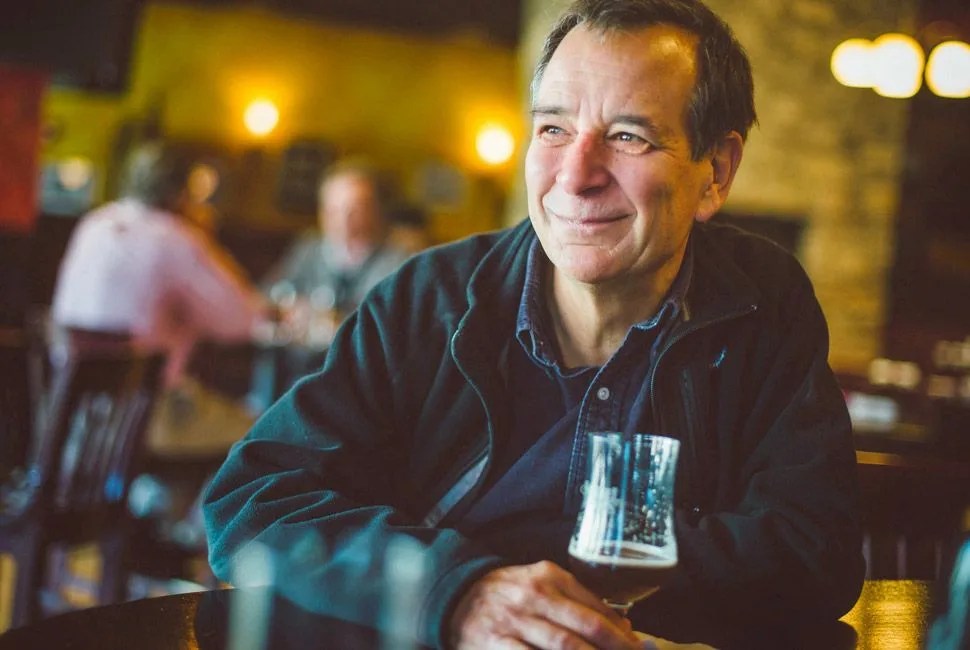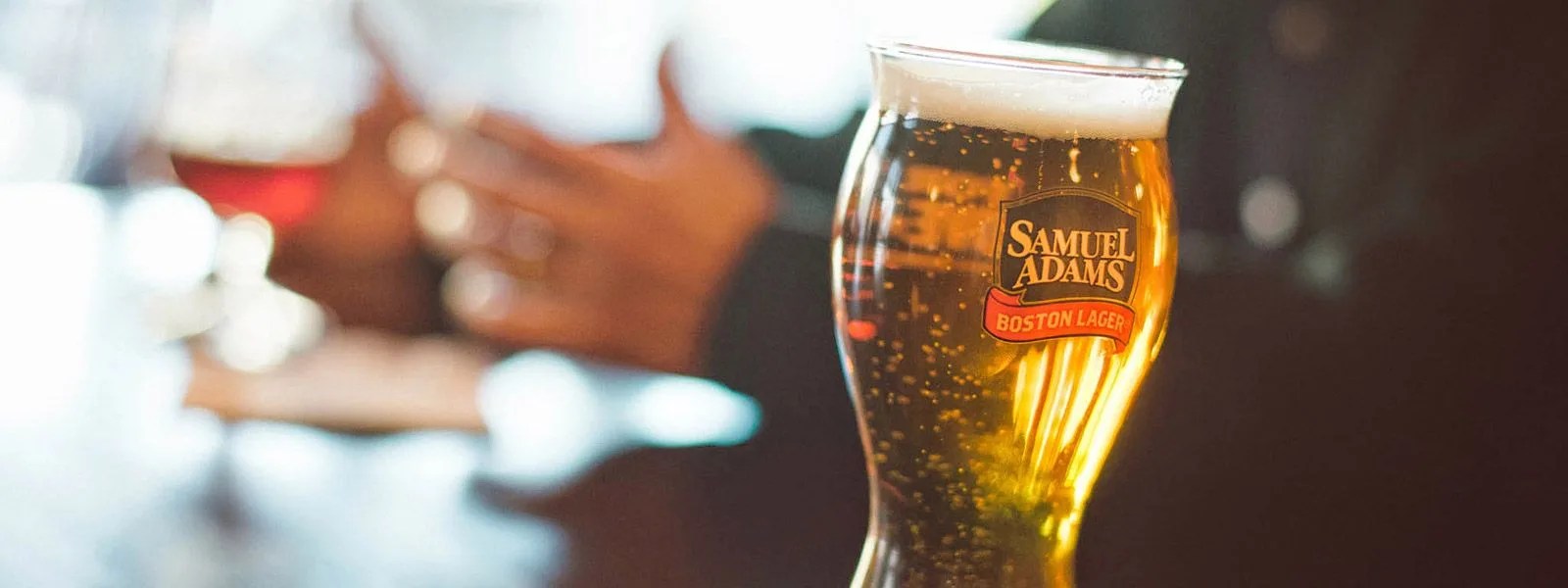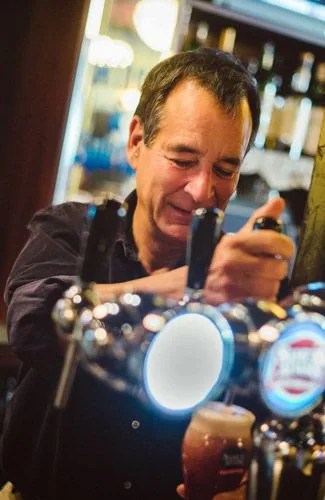I spin the beer glass by its stem with my right hand and then take a sip. It’s the Great American Beer Festival gold-medal-winning Tetravis we’re drinking on this sunny afternoon, just a little past 2 p.m. at MJ O’Connor’s Irish Pub in Boston’s Seaport District. The beer is Jim Koch’s own creation — a Belgian quad at over 10% alcohol — and he’s embracing it with the same passion a parent would a newborn kid. He sticks his nose in the glass rather emphatically and presents me with the bottle for closer inspection.
“Mmm”, he mumbles, his nose as far as it will go in the glass, eyes closed. “Yup. Pretty good.” He inhales through his nose deeply, audibly, dramatically, to the point where I wonder if there’s an audience behind me. “There’s a bit of detergent left on the glass, but it’s pretty good.”

Last year, Samuel Adams celebrated its 30th anniversary on the heels of more than doubling the sales of the second largest craft brewery, Sierra Nevada, in 2013. There were over 2,000 breweries in America operating within the craft beer market, and the closest anyone came was halfway there. That’s pretty damn impressive, and most of the credit falls into the lap of Koch (pronounced “cook”). While all the craft beer pioneers of the late ’80s and ’90s spoke about the importance of understanding the business of beer — not just making good beer — no one actually did until Koch. His beer sales back it up, as does the fact that he became the craft beer industry’s first billionaire in 2013.
But Koch’s success, determination and growth did not come without criticism from others within the industry who were less than impressed by his driven, all-bets-off approach. Much of the reason Sam Adams grew so dramatically is due to the fact that Koch was the first — and still only — craft brewer to use radio and television advertisements to promote his beer. This approach was something many craft brewers resented, as it seemed contradictory to the then-tiny craft beer industry’s altruistic quest to rise above the corporate-run breweries that dominated the American mainstream market.

“Call me jealous, or a curmudgeon”, Brooklyn Brewery’s Steve Hindy wrote in his new book, The Craft Beer Revolution: How a Band of Microbrewers Is Transforming the World’s Favorite Drink, which recounts the history of the craft beer industry. “But I always thought Koch’s goal was to dominate — to own — the craft brewing revolution.”


